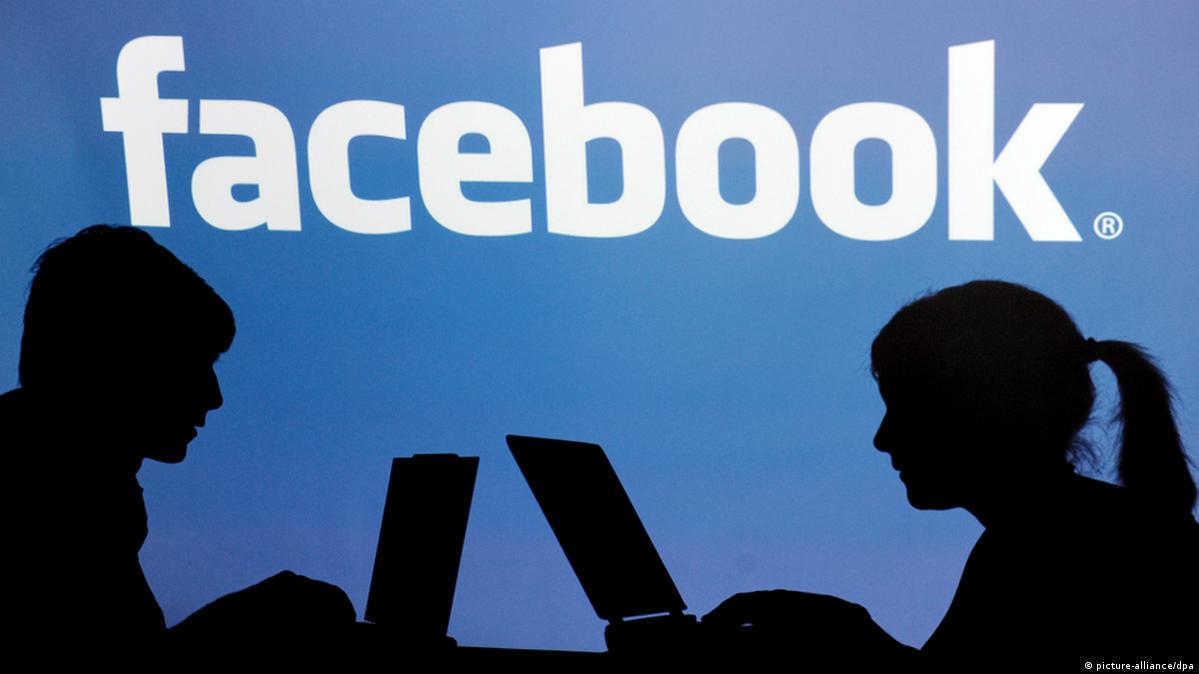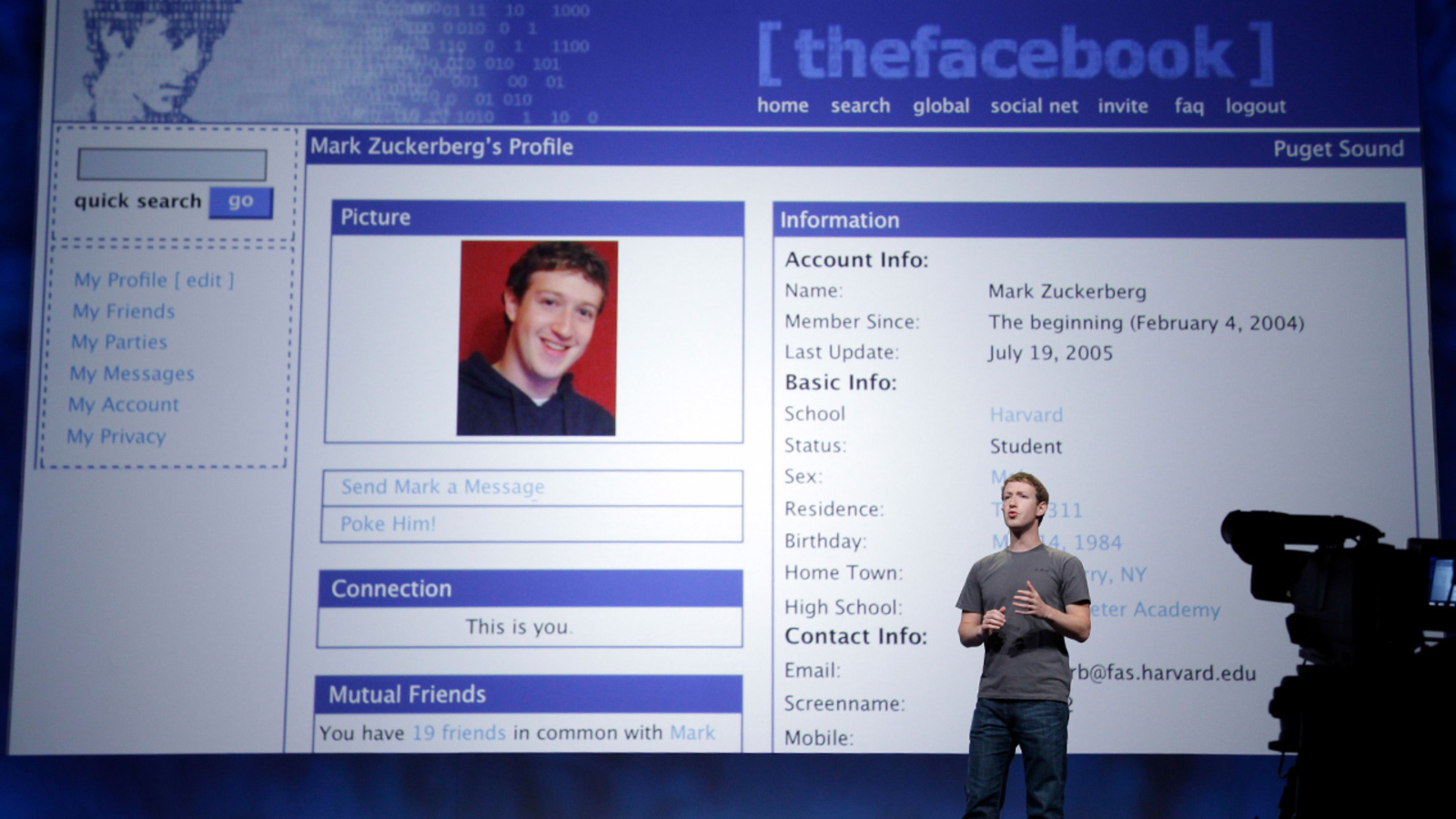Facebook 20 Years Later - How It Grew From A College Idea To A Digital Giant!
Explore the transformative journey of Facebook 20 years later – from a college project to a global influencer. Dive into the evolution, challenges, and the ongoing impact that defines the social media giant's enduring legacy in the digital world.
Author:Xander OddityReviewer:Dr. Felix ChaosphereFeb 05, 20241.5K Shares21.9K Views

How is Facebook 20 years later? On February 4, 2004, a Harvard University undergrad named Mark Zuckerberg introduced TheFacebook.com, a social networking site for his fellow students. Little did he know, two decades later, his brainchild would evolve into the behemoth we now know as Facebook, shaping the digital landscape and permeating our cultural fabric.
How Facebook Started
Facebook's initial exclusivity, limited to Harvard students, laid the groundwork for its success. It emphasized the gamification of social relations through "likes," comments, shares, and friend counts. Pablo Boczkowski, a professor at Northwestern University, notes that Facebook tapped into the cultural trend of comparing oneself to peers, a phenomenon that intensified through its success.
“„From a cultural standpoint, there has been a very clear trend towards the gamification of social relations. Facebook tapped into that and intensified that in society through its success. You can check what others in your peer group have and compare yourself to them, in a way you really can’t do in your personal life.- Pablo Boczkowski
Over time, Facebook expanded its user base, starting with other colleges and eventually including high schoolers and professionals. This strategy, as Zuckerberg mentioned in 2006, aimed to strengthen the experience for everyone.
Facebook Rivals' Demise - MySpace And Friendster
As Facebook soared, early competitors like MySpace and Friendster faced decline. MySpace's attempt to pivot to a music destination fell short, and despite efforts to revamp, it succumbed to irrelevance. Friendster, on the other hand, faced issues with user connections and platform design, leading to its discontinuation in 2011.
“„In a rapidly changing sector of the economy, to be around for 20 years is a remarkable feat. It seems to me that Facebook as a company is fairly good at trying to listen to what the customers want and deliver a product that is optimized. It has been extremely nimble and successful.- Pablo Boczkowski
Facebook's nimbleness and successful adaptation set it apart. While competitors faded, Facebook's innovation and strategic acquisitions paved the way for its continued dominance.
Evolution Into Meta Platforms Inc.
In 2012, Facebook made a pivotal move by acquiring Instagram for $1 billion, diversifying its social media portfolio. Meta Platforms Inc., formerly Facebook, solidified its position with strategic investments in messaging apps like Facebook Messenger and WhatsApp, along with the acquisition of the virtual reality company Oculus.
“„For a very large portion of the global population, the ability to use a telecommunications company for free is an incredibly cost-saving investment. By providing this service, the company generates a significant level of critical mass. Users can reach everybody using this product. Then the company collects the data on how we use it and they devise ways to monetize that.- Pablo Boczkowski
Meta's ability to adapt its platform and expand into diverse technological domains showcased its longevity in an ever-changing digital landscape.
The Dark Side Of Social Media
Fast forward to Facebook's 20th anniversary, and the celebratory mood is dampened by intense scrutiny. Mark Zuckerberg faced harsh criticism from the US Senate regarding the failure to protect children and young people on major internet platforms. The focus on engagement and profit over basic safety has raised concerns about the impact of social media on mental health, especially among the youth.
“„Their design choices, their failures to adequately invest in trust and safety, their constant pursuit of engagement and profit over basic safety have all put our kids and grandkids at risk.- Democrat Dick Durbin
"You have blood on your hands," Republican Senator Lindsey Graham shouted at Zuckerberg. "You have a product that's killing people."
Gerd Gigerenzer, a German psychologist, highlighted the harmful effects, including increased insecurity, low self-esteem, depression, and even suicidal thoughts linked to social media usage.
Empowerment Vs. Disempowerment
In its early days, Facebook symbolized the promise of transparency, participation, and democracy. It connected like-minded people globally and played a pivotal role in events like the Arab Spring. However, the price of this connectivity became evident – users paid with their data and attention span.
“„Humans are social creatures, and these platforms have achieved something unlike any other medium before them: they allow us to interact with other people at many different levels, subtly calibrated according to different types of friends. They allow us to take part in the lives of others.- Martin Emmer, Berlin-based media scientist
The attention economy, fueled by targeted advertising and precise personality profiling, led to growing polarization, vicious political discussions, and the proliferation of conspiracy theories.
The Political Arena - From Influence To "Manipulation"
Facebook's role in political events, from allegations of Russian interference to the Cambridge Analytica scandal, highlighted the platform's potential for both influence and manipulation. The upcoming mega election year in 2024 raises concerns about the influence of artificial intelligence and social media on political landscapes.
"The rise of deepfakes from AI and other new applications of technology to manipulate people are coming about, and I think many people will not be prepared for that," said Jaron Lanier
Jaron Lanier, a US computer scientist, warned about the rise of deepfakes and technology manipulation, emphasizing the need for awareness. The attention economy and data-centric approach have, to some extent, eroded the democratic ideals initially associated with social media.
The Regulatory Response
As the dangers of social media become apparent, politicians are playing catch-up. The European Union passed the Digital Services Act in 2022 to address issues like hate speech and protect users' fundamental rights. Efforts are underway to make technology giants more transparent, allowing researchers to understand the mechanisms behind the platforms.
"There's progress being made toward transparency so that we can open up this black box a little and see how this machine works," said Philipp Lorenz-Spreen, Berlin-based network scientist
However it works, it's extremely profitable. Facebook's parent company Meta, which also owns Instagram and WhatsApp, earned so much money from advertising in the last quarter of 2023 that Meta decided for the first time to pay out dividends to its shareholders on its 20th anniversary. For them, at least, there may be something to celebrate after all.
Facebook 20 Years Later FAQs
Is Facebook Still As Popular As It Was 20 Years Ago?
Absolutely! Facebook remains a social media powerhouse with over 2 billion active daily users, making it one of the most widely used platforms globally. Its influence continues to grow, shaping our online interactions and cultural conversations.
How Has Facebook Evolved Over The Past Two Decades?
Facebook has undergone a remarkable transformation. From its humble beginnings as a college-centric platform, it has expanded globally, acquired major players like Instagram and WhatsApp, and diversified into virtual reality with the acquisition of Oculus. The platform's adaptability has been key to its enduring success.
What Challenges Has Facebook Faced In Its 20-year Journey?
Facebook hasn't been without its fair share of challenges. It faced scrutiny over data privacy concerns, underwent significant changes in response to societal shifts, and dealt with criticism over its impact on mental health. Despite these challenges, Facebook has displayed resilience and adaptability.
How Has Facebook Influenced Political And Cultural Landscapes?
Facebook has played a pivotal role in shaping political and cultural narratives. From being a catalyst during the Arab Spring to facing allegations of interference in elections, the platform's influence on global events is undeniable. It's a digital space where discussions, movements, and even revolutions find a platform.
What Does The Future Hold For Facebook 20 Years Later?
The future of Facebook looks promising. As it navigates challenges related to user safety and societal impact, the company continues to innovate and adapt. With ongoing advancements, strategic acquisitions, and a vast user base, Facebook is poised to remain a central player in the ever-evolving digital landscape.
Conclusion
So how is Facebook 20 years later? Reflecting on its journey from a dorm room project to a global phenomenon, it's clear that Facebook's impact is immeasurable. As we delve into its two-decade evolution, one thing stands out – Facebook's continued influence in shaping our digital interactions. From connecting friends to influencing global conversations, Facebook's journey is far from over.
In the words of Zuckerberg at the 2006 New York Times interview, Facebook has come a long way, and by adapting to changing dynamics, it continues to strengthen the experience for its global user base.

Xander Oddity
Author
Xander Oddity, an eccentric and intrepid news reporter, is a master of unearthing the strange and bizarre. With an insatiable curiosity for the unconventional, Xander ventures into the depths of the unknown, fearlessly pursuing stories that defy conventional explanation. Armed with a vast reservoir of knowledge and experience in the realm of conspiracies, Xander is a seasoned investigator of the extraordinary.
Throughout his illustrious career, Xander has built a reputation for delving into the shadows of secrecy and unraveling the enigmatic. With an unyielding determination and an unwavering belief in the power of the bizarre, Xander strives to shed light on the unexplained and challenge the boundaries of conventional wisdom. In his pursuit of the truth, Xander continues to inspire others to question the world around them and embrace the unexpected.

Dr. Felix Chaosphere
Reviewer
Dr. Felix Chaosphere, a renowned and eccentric psychiatrist, is a master of unraveling the complexities of the human mind. With his wild and untamed hair, he embodies the essence of a brilliant but unconventional thinker. As a sexologist, he fearlessly delves into the depths of human desire and intimacy, unearthing hidden truths and challenging societal norms.
Beyond his professional expertise, Dr. Chaosphere is also a celebrated author, renowned for his provocative and thought-provoking literary works. His written words mirror the enigmatic nature of his persona, inviting readers to explore the labyrinthine corridors of the human psyche.
With his indomitable spirit and insatiable curiosity, Dr. Chaosphere continues to push boundaries, challenging society's preconceived notions and inspiring others to embrace their own inner tumult.
Latest Articles
Popular Articles
